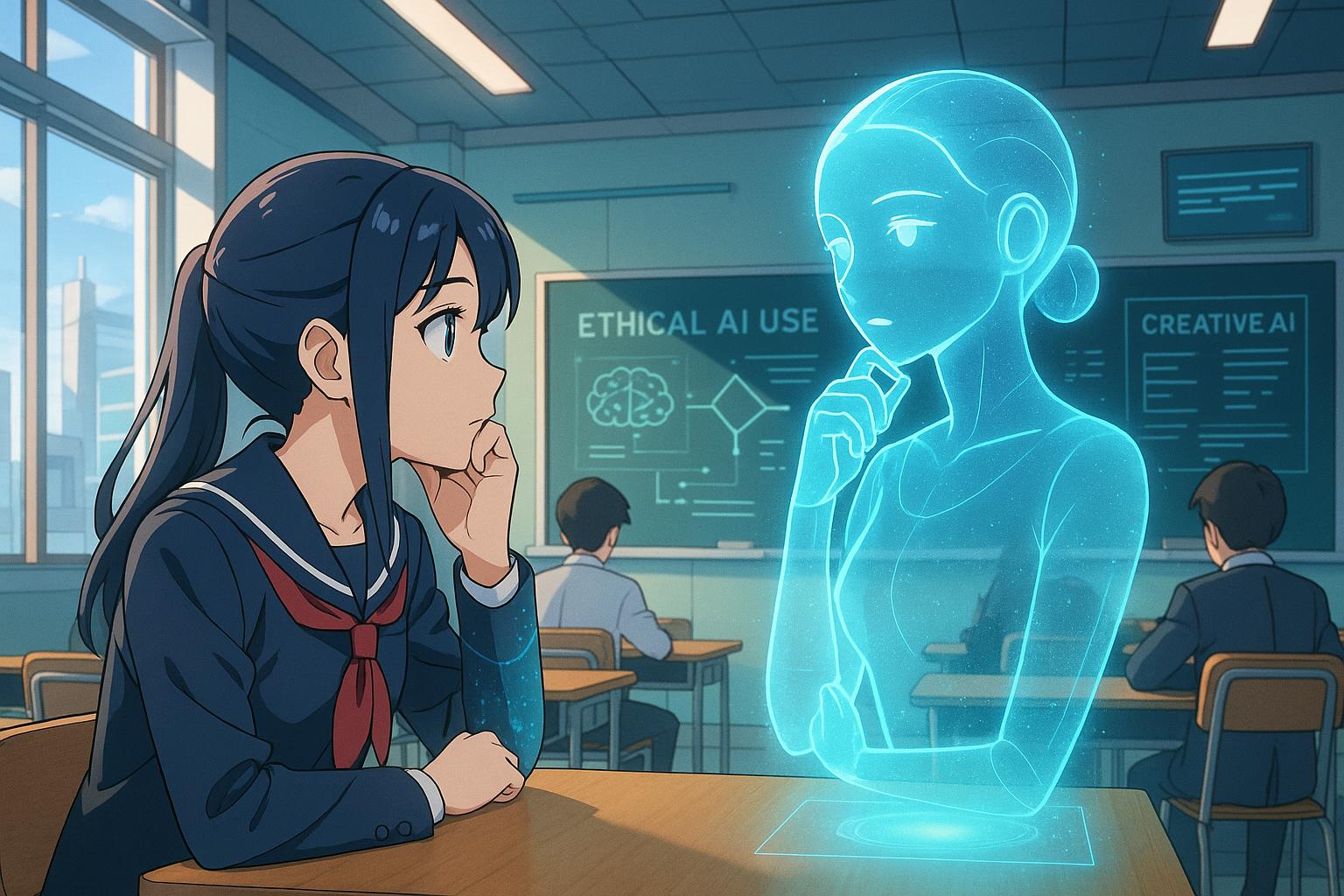As generative AI reshapes learning, traditional assessments risk becoming obsolete. Educators are urged to redesign evaluation to prioritise critical thinking, ethical use, and AI collaboration, preparing students for an AI-integrated future.
We find ourselves in an era marked by unprecedented technological advancements, particularly in the realm of education, where generative artificial intelligence (AI) is reshaping how we teach, learn, and assess. Tools such as ChatGPT, DeepSeek, Google Gemini, and creative application platforms like Midjourney are becoming ubiquitous in students’ lives—akin to calculators and search engines of previous generations. However, as these tools proliferate, they challenge the very foundations of traditional assessment methods that dominated the educational landscape for decades.
Historically, assessments were designed to gauge students’ understanding and ability to reproduce knowledge independently. Conventional methods included essays, quizzes, and exams that measure memorisation and factual recall. Yet, these approaches were developed during a time when knowledge was not only limited but also challenging to access. Today, however, information is abundant and easily accessible, with AI capable of producing detailed essays, solving complex equations, and summarising extensive texts almost instantaneously. This raises critical questions: Are we still effectively measuring the right competencies?
Initially, many educators viewed generative AI as a potential academic threat, envisaging a scenario where students might outsource their work to machines. This concern has legitimacy; how can educators ascertain a student’s genuine understanding when AI can perform tasks traditionally reserved for human effort? Yet, framing generative AI solely as a source of academic dishonesty overlooks its broader role in professional environments. The reality is that proficiency in AI is increasingly becoming a prerequisite in many fields. Individuals are now evaluated not merely on their ability to produce original work but on their skills in utilising AI to augment their capabilities.
Consequently, educational assessments need to evolve. It is imperative that we reconsider what success looks like in an AI-enhanced educational landscape. Future assessments should focus on evaluating a range of competencies essential for students’ lives beyond academia. This includes critical thinking—can students discern the quality and credibility of AI-generated content? It involves prompt engineering, the ability to interact effectively with AI tools, and embracing creativity that goes beyond what AI can currently produce. Ethical considerations concerning AI usage are equally critical; students must understand responsible practices while being mindful of issues such as plagiarism and data privacy.
A more holistic approach to assessment is necessary. One promising method is process-based assessment, where students document their work’s iterative nature—what prompts they used, what worked, and how they improved upon AI-generated outputs. This process-oriented focus can transform assessments into valuable learning experiences. Collaborative assessments also gain importance, simulating real-world scenarios where teamwork and AI collaboration are essential to solving complex problems. Assignments that require students to explain their applications of AI in discussions can yield insights into their understanding and reduce the propensity for academic dishonesty.
Some educational institutions have begun to explore AI-inclusive assessments, where students must apply AI tools within tasks. Here, the emphasis shifts from whether AI is used to how ethically and skillfully it is employed. Such strategies enable students to engage critically with technology while fostering a culture of curiosity and integrity in learning environments.
Despite the overwhelming nature of these transformative changes, the role of the educator remains crucial. Teachers are no longer content experts alone; they must act as coaches and facilitators, guiding students through a landscape increasingly shaped by AI. This shift calls for assessments that resist simple surveillance methods and instead focus on the authenticity of student engagement and learning processes.
Generative AI presents both challenges and opportunities for education. By reimagining assessment methods to accommodate the realities of AI, we can create meaningful metrics that measure not just knowledge, but the development of critical, ethical, and creative thinkers. As we stand at this crossroads, the choice remains clear. We can either cling to outdated assessment practices or embrace the complexities of modern education—recognising that learning transcends mere answer production; it is about asking insightful questions, making informed decisions, and nurturing adaptable, ethically-minded individuals.
The author, a Professor at the College of Computing and Informatics at Universiti Tenaga Nasional (UNITEN), highlights the necessity of aligning educational practices with the evolving landscape of AI technologies. As generative AI becomes an integral part of our lives, the challenge ahead is to ensure that education can adapt in ways that support holistic student development, rather than confining it to traditional methodologies.
Reference Map
- Paragraphs 1, 2, 3, 4, 5, 6, 7, 10
- Paragraphs 3, 4
- Paragraphs 4, 6
- Paragraphs 5, 7
- Paragraph 8
- Paragraph 9
- Paragraphs 8, 9
Source: Noah Wire Services
- https://www.businesstoday.com.my/2025/05/18/assessing-academia-in-the-age-of-gen-ai/ – Please view link – unable to able to access data
- https://www.ft.com/content/26ff910a-d19e-444b-9e4c-f06e6d546db3 – This article discusses the dual role of AI in education, highlighting its potential as both a teaching aid and a tool for academic dishonesty. It emphasizes the need for educators to understand appropriate AI applications and communicate the consequences of misuse effectively. The piece also explores how AI can enhance lesson personalization and reduce administrative workload, while cautioning against overreliance that may compromise learning outcomes.
- https://www.ft.com/content/c4b45048-994d-4ed5-b0d2-cd085a81f6cd – This piece examines the integration of AI in education, focusing on its role in augmenting teaching rather than replacing educators. It highlights how AI tools like ChatGPT can streamline tasks such as drafting research and structuring academic papers, thereby enhancing academic workflows. The article also addresses concerns about plagiarism and emphasizes the importance of interaction and critical thinking in learning, suggesting that AI should be viewed as a facilitator of education.
- https://time.com/6300950/ai-schools-chatgpt-teachers/ – This article explores innovative ways educators are incorporating ChatGPT into classrooms, despite concerns about its potential misuse. It provides examples of teachers using ChatGPT to explain complex topics, create engaging content, and encourage creative student projects. The piece also discusses the importance of fact-checking AI-generated content and the need for educators to adapt to technological advancements to enhance learning experiences.
- https://educationaltechnologyjournal.springeropen.com/articles/10.1186/s41239-024-00468-z – This scoping review examines how generative AI is transforming assessment in higher education. It identifies significant disruptions to traditional assessment approaches and the need for institutions to redesign assessment policies to ensure academic integrity and meaningful learning. The article emphasizes the importance of clear policies on AI usage and assessment rules, suggesting that transparency in AI tool usage can mitigate concerns about plagiarism.
- https://www.tandfonline.com/doi/full/10.1080/03054985.2025.2455549 – This article discusses the profound effects of generative AI on educational assessment and credentialization. It highlights the capabilities of AI in producing essays, data analysis, and tutorials, and examines the potential societal implications of widespread AI use in education. The piece presents three scenarios regarding AI’s impact on educational assessment, ranging from limited to transformative, and emphasizes the need for sociological consideration of these developments.
- https://arxiv.org/abs/2406.18900 – This paper explores the integration of artificial intelligence in educational measurement, focusing on opportunities and ethical challenges. It discusses how AI enables automated scoring, rapid content analysis, and personalized feedback, enhancing the assessment experience. The article also addresses ethical concerns such as validity, reliability, transparency, fairness, and equity, highlighting the risks of algorithmic bias and the opacity of AI decision-making processes.
Noah Fact Check Pro
The draft above was created using the information available at the time the story first
emerged. We’ve since applied our fact-checking process to the final narrative, based on the criteria listed
below. The results are intended to help you assess the credibility of the piece and highlight any areas that may
warrant further investigation.
Freshness check
Score:
9
Notes:
The narrative references currently relevant AI tools such as ChatGPT, DeepSeek, Google Gemini, and Midjourney, all of which are prominent and contemporary in 2025. The author’s affiliation as a current professor supports recentness. No indications of recycled or outdated information were found; there is no mention of persons or events that would date the content significantly. The text appears original rather than a press release, which would typically warrant very high freshness ratings due to timeliness.
Quotes check
Score:
10
Notes:
No direct quotes attributed to other individuals or sources are present in the narrative. The text is authored by a professor sharing expert insights, suggesting this is an original exposition rather than a rehashing of external quotations.
Source reliability
Score:
7
Notes:
The narrative originates from Business Today Malaysia, a regional business news site that is moderately reputable but less internationally established than global outlets like BBC or Reuters. The author is an academic professional, which adds credibility to the content. However, the publication itself is less widely known beyond its regional scope, so some caution on source weight is warranted.
Plausability check
Score:
9
Notes:
The claims regarding the impact of generative AI on education and assessment are plausible and consistent with observable trends in AI development and educational discourse as of 2025. The discussion about shifting assessment methods and ethical considerations aligns well with current educational challenges. No extraordinary or unverifiable claims are made.
Overall assessment
Verdict (FAIL, OPEN, PASS): PASS
Confidence (LOW, MEDIUM, HIGH): HIGH
Summary:
The narrative is up-to-date, original, and authored by a subject expert, published on a moderately reliable platform. The topics and claims align with known developments around generative AI in education, with no direct quotes or recycled material detected. This supports a high-confidence pass on factual reliability and timeliness.













